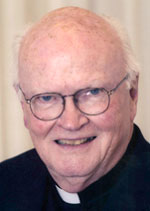NBC News calls it a six-month suspension; others call it a fall from grace. However you describe it, the career crisis in which Brian Williams now finds himself provides more than a few learning moments for anyone with a pulse and a modicum of interest in current events.
Back in in the days when “Good night, Chet” and “Good night, David” put the lid on NBC’s televised report of the day’s events, and when Walter Cronkite gave his viewers a “that’s the way it is” assurance that they were fully and accurately briefed on what was going on in the world, the network anchors who, as the British would say, “read the news,” were held in high regard by millions of Americans.
And although the line between news and entertainment is now more difficult to locate, and ideological tilts are more commonplace than ever before in news reports, television news anchors still enjoy a generous measure of respect and trust.
That’s why Williams’ recent admission of an on-air embellishment of the facts in reporting his proximity to enemy fire in Iraq back in 2003 has now raised a question of his trustworthiness. It has also triggered an incipient erosion of respect. Whether he will survive the crisis is anyone’s guess.
[hotblock]
In suspending him, his superiors at NBC suggested that Williams deserves a second chance. Whether they will still think that way six months hence (an eternity in television journalism) is an open question.
Did he lie or just make an understandable mistake?
Three Latin words provide a concise summary of the meaning of a lie: “locutio contra mentem.” The “locution,” a word or phrase, can be written, spoken aloud or delivered in the form of a nod or gesture. The “mind,” or “mentem,” is the faculty employed in reasoning and remembering. And “contra,” of course, points to opposition between what is said and what is known to be true.
But what if the mind is confused? I think it is Tuesday and I say so, but the fact is it is Wednesday. I’m not lying; I’m just mixed up. I’m not fabricating; I simply made a mistake.
It is the news anchor’s professional responsibility not to be in error — to have the facts straight and to report them accurately. It goes without saying that fabrication has no place in the newsroom. The same can be said of exaggeration.
Regrettably, the high standard applied to newscasters is typically not applied to people in the news, particularly holders of public office. They sometimes lie, often exaggerate and rarely experience “suspension,” although they sometimes fail to win re-election. A person of integrity lives uprightly. A person of veracity lives and speaks truthfully — all the time.
I’m in the forgiveness business, so I hope Brian Williams can survive the suspension and return to the work he does well and obviously loves.
If public opinion puts him in the category of an officeholder or corporate CEO, he might be back. But if his celebrity status is paramount, he might not be able to return to the mountaintop. He will become just another ethics lesson for others to learn.
***
Jesuit Father Byron is university professor of business and society at St. Joseph’s University, Philadelphia. Email: wbyron@sju.edu.
PREVIOUS: Remembering a great priest and leader
NEXT: Exploring the pope’s vision for women in the church




Share this story